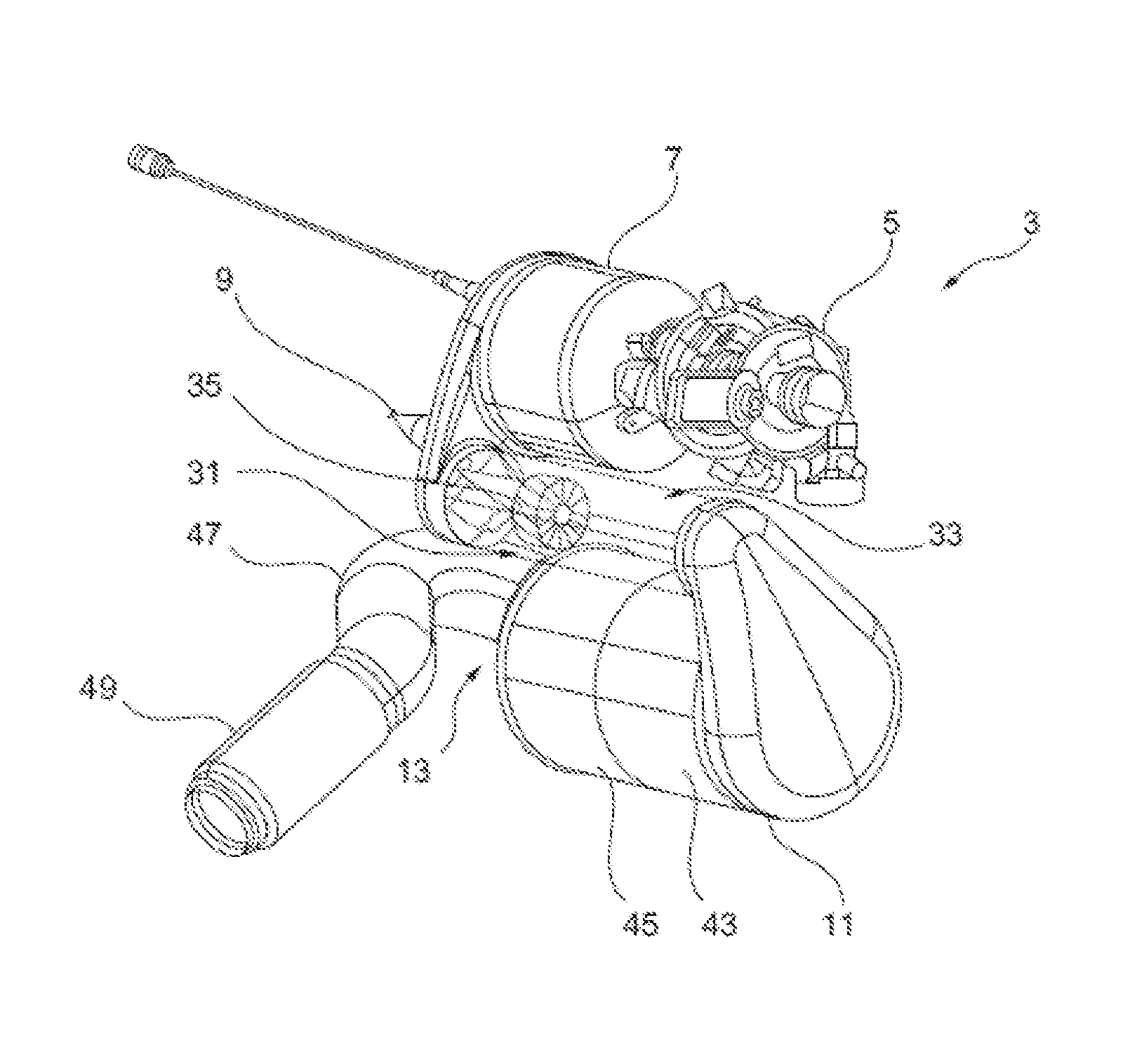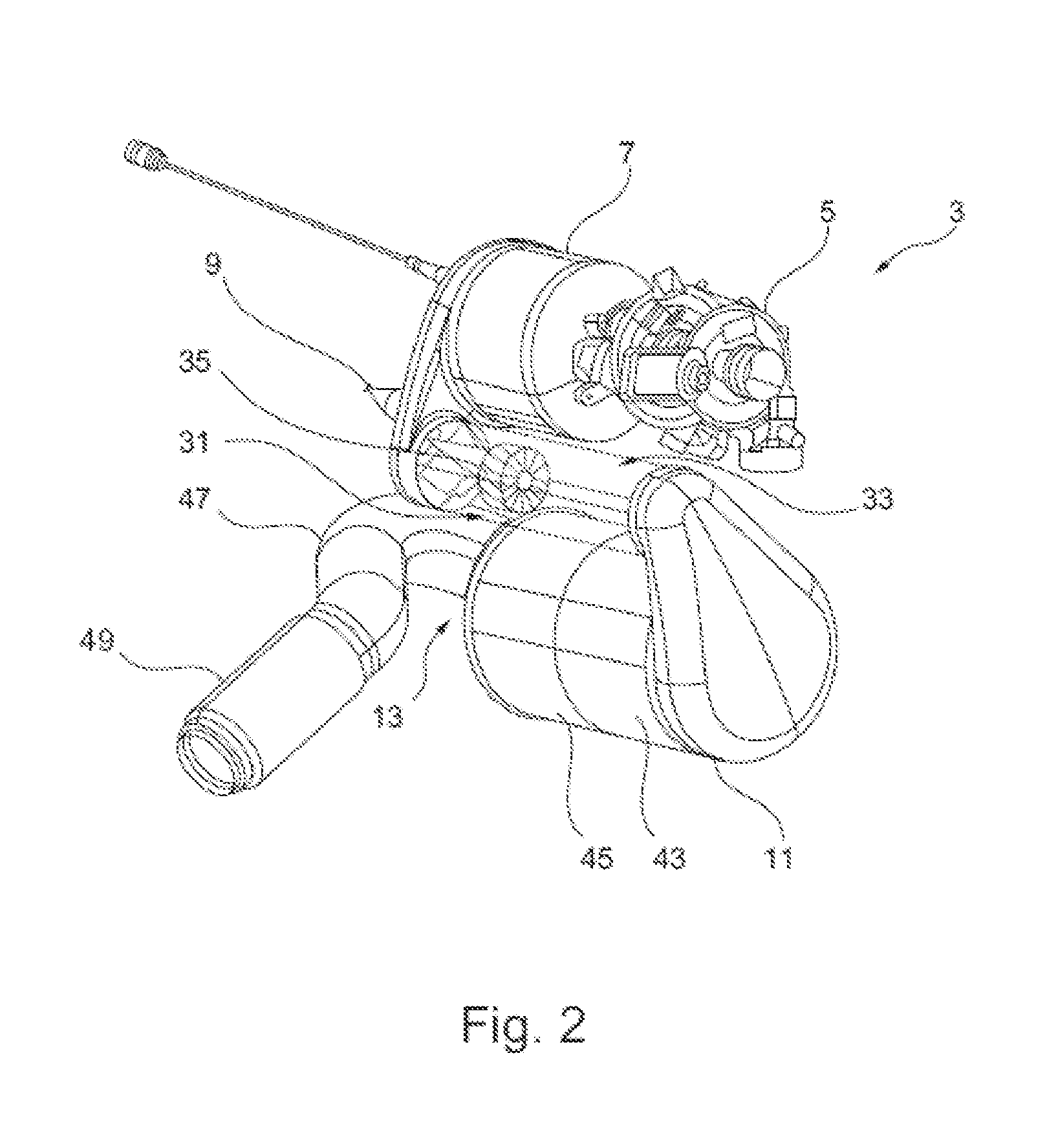Cylinder block arrangement with an exhaust gas system
a technology of exhaust gas and cylinder block, which is applied in the direction of engines, mechanical equipment, machines/engines, etc., can solve the problems of logistical problems, high cost, and inability to place near the engine, and achieve the effect of reducing temperature and pressure losses
- Summary
- Abstract
- Description
- Claims
- Application Information
AI Technical Summary
Benefits of technology
Problems solved by technology
Method used
Image
Examples
Embodiment Construction
[0024]FIG. 1 shows a schematic view of a first exemplary embodiment of an engine block arrangement 1 having an engine block 2 and an exhaust gas system 3. The exhaust gas system, viewed in the flow direction of an exhaust gas flow from the engine block 2 to an exhaust (not illustrated), includes an exhaust gas turbocharger 5, an oxidation catalytic converter 7, a feed device 9 for urea-water solution, a particle filter, and an SCR catalytic converter situated one behind the other, the latter two components being situated together in a container 11, also referred to as a combi-box, and also includes a joint 13 for connecting a pipe connection, not illustrated, which leads to a muffler, likewise not illustrated, and lastly, to an exhaust. A decoupling element, not illustrated, is preferably provided directly in the connection to the joint 13 in order to vibrationally decouple the parts situated downstream, viewed in the flow direction of the exhaust gas, from the components of the exh...
PUM
 Login to View More
Login to View More Abstract
Description
Claims
Application Information
 Login to View More
Login to View More - R&D
- Intellectual Property
- Life Sciences
- Materials
- Tech Scout
- Unparalleled Data Quality
- Higher Quality Content
- 60% Fewer Hallucinations
Browse by: Latest US Patents, China's latest patents, Technical Efficacy Thesaurus, Application Domain, Technology Topic, Popular Technical Reports.
© 2025 PatSnap. All rights reserved.Legal|Privacy policy|Modern Slavery Act Transparency Statement|Sitemap|About US| Contact US: help@patsnap.com



